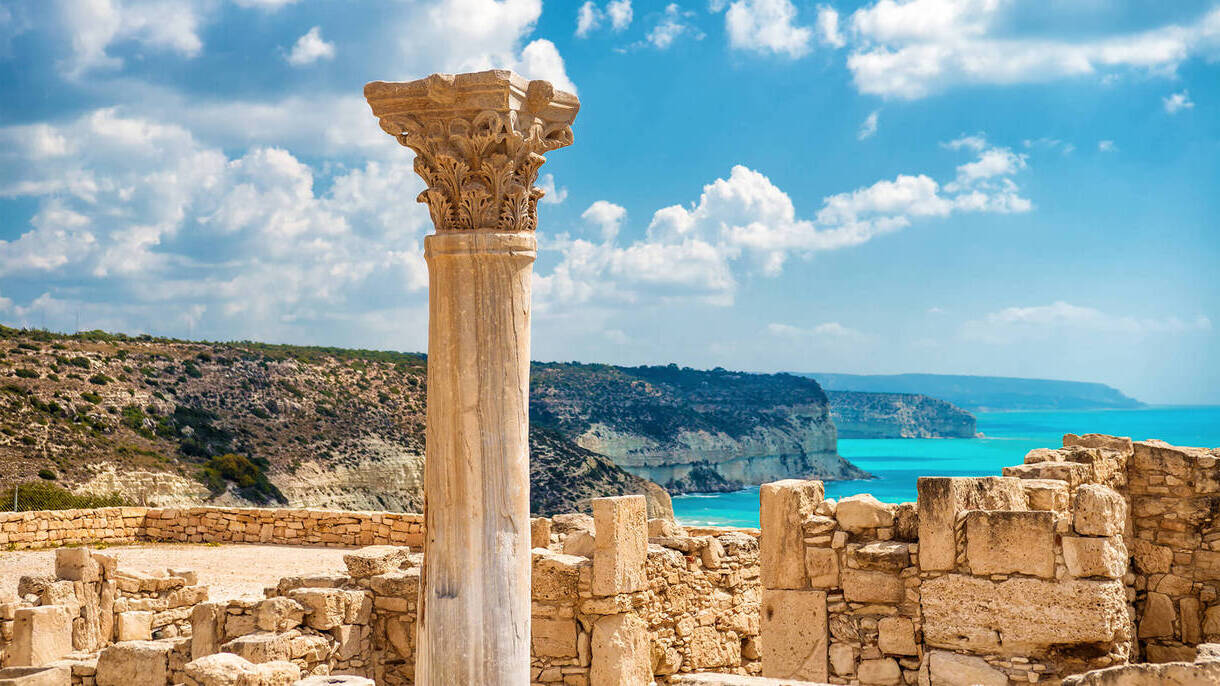
Mediterranean history is a rich tapestry woven from countless cultures, empires, and events. From the ancient Egyptians to the mighty Romans, this region has been a cradle of civilization. Did you know that the Mediterranean Sea was once a bustling highway for trade and conquest? Its shores have seen the rise and fall of legendary cities like Carthage and Alexandria. Phoenicians were among the first to navigate these waters, spreading their alphabet far and wide. The Mediterranean also played a crucial role in the spread of religions, including Christianity and Islam. Ready to dive into 25 intriguing facts about this fascinating region? Let's set sail!
Key Takeaways:
- Ancient Mediterranean civilizations like the Egyptians, Greeks, and Romans made lasting contributions to culture, technology, and trade, shaping the world we live in today.
- The Mediterranean region's rich history includes wars, cultural contributions, and natural wonders, making it a fascinating and diverse area to explore and learn about.
Ancient Civilizations
The Mediterranean region has been the cradle of many ancient civilizations. These societies have left a lasting impact on culture, politics, and technology.
- The Egyptians built the pyramids, which are among the Seven Wonders of the Ancient World.
- The Phoenicians were master shipbuilders and traders, spreading their alphabet across the Mediterranean.
- The Minoans of Crete developed one of the earliest forms of writing, known as Linear A.
- The Greeks introduced democracy, philosophy, and the Olympic Games.
- The Romans built an extensive network of roads and aqueducts, many of which are still in use today.
Trade and Commerce
Trade has always been a vital part of Mediterranean history. The region's strategic location made it a hub for commerce and cultural exchange.
- The Silk Road connected the Mediterranean to Asia, facilitating the exchange of goods and ideas.
- Venice became a major trading power during the Middle Ages, controlling much of the spice trade.
- The Carthaginians were known for their extensive trade networks across the Mediterranean and into Africa.
- The Byzantine Empire continued Roman trade practices, maintaining economic stability in the region.
- The Ottoman Empire controlled key trade routes between Europe and Asia for centuries.
Wars and Conflicts
The Mediterranean has seen its share of wars and conflicts, shaping the political landscape of the region.
- The Punic Wars between Rome and Carthage determined the dominant power in the Western Mediterranean.
- The Crusades were a series of religious wars initiated by European Christians to reclaim the Holy Land.
- The Battle of Lepanto in 1571 marked a significant naval conflict between the Holy League and the Ottoman Empire.
- The Greek War of Independence in the 19th century led to the establishment of modern Greece.
- World War II saw significant battles in the Mediterranean, including the North African Campaign.
Cultural Contributions
The Mediterranean has been a melting pot of cultures, contributing significantly to art, literature, and science.
- Homer's epics, "The Iliad" and "The Odyssey," are foundational texts of Western literature.
- The Library of Alexandria was one of the largest and most significant libraries of the ancient world.
- The Renaissance began in Italy, leading to a revival of art, science, and literature.
- The Moors introduced advanced agricultural techniques and scientific knowledge to Spain.
- The Jewish communities in the Mediterranean have a rich history of scholarship and cultural contributions.
Natural Wonders
The Mediterranean is not just rich in history but also in natural beauty and biodiversity.
- The Mediterranean Sea is home to over 17,000 marine species.
- Mount Etna in Sicily is one of the most active volcanoes in the world.
- The Blue Grotto in Capri is famous for its stunning blue waters.
- The Balearic Islands are known for their unique flora and fauna.
- The Mediterranean climate is characterized by hot, dry summers and mild, wet winters, making it ideal for agriculture.
The Mediterranean's Rich Tapestry
The Mediterranean region, with its diverse cultures, ancient civilizations, and historical landmarks, offers a treasure trove of fascinating facts. From the birthplace of democracy in Athens to the mysteries of the pyramids in Egypt, this area has shaped much of human history. The Roman Empire's vast influence, the Phoenicians' maritime prowess, and the Ottoman Empire's lasting legacy all contribute to the Mediterranean's rich narrative.
Understanding these facts not only enriches our knowledge but also deepens our appreciation for the interconnectedness of past and present. Whether you're a history buff or just curious, the Mediterranean's story is a testament to human ingenuity, resilience, and cultural exchange. Dive into this region's past, and you'll uncover the roots of many modern traditions and innovations. The Mediterranean truly is a living museum of human achievement.
Frequently Asked Questions
Was this page helpful?
Our commitment to delivering trustworthy and engaging content is at the heart of what we do. Each fact on our site is contributed by real users like you, bringing a wealth of diverse insights and information. To ensure the highest standards of accuracy and reliability, our dedicated editors meticulously review each submission. This process guarantees that the facts we share are not only fascinating but also credible. Trust in our commitment to quality and authenticity as you explore and learn with us.
